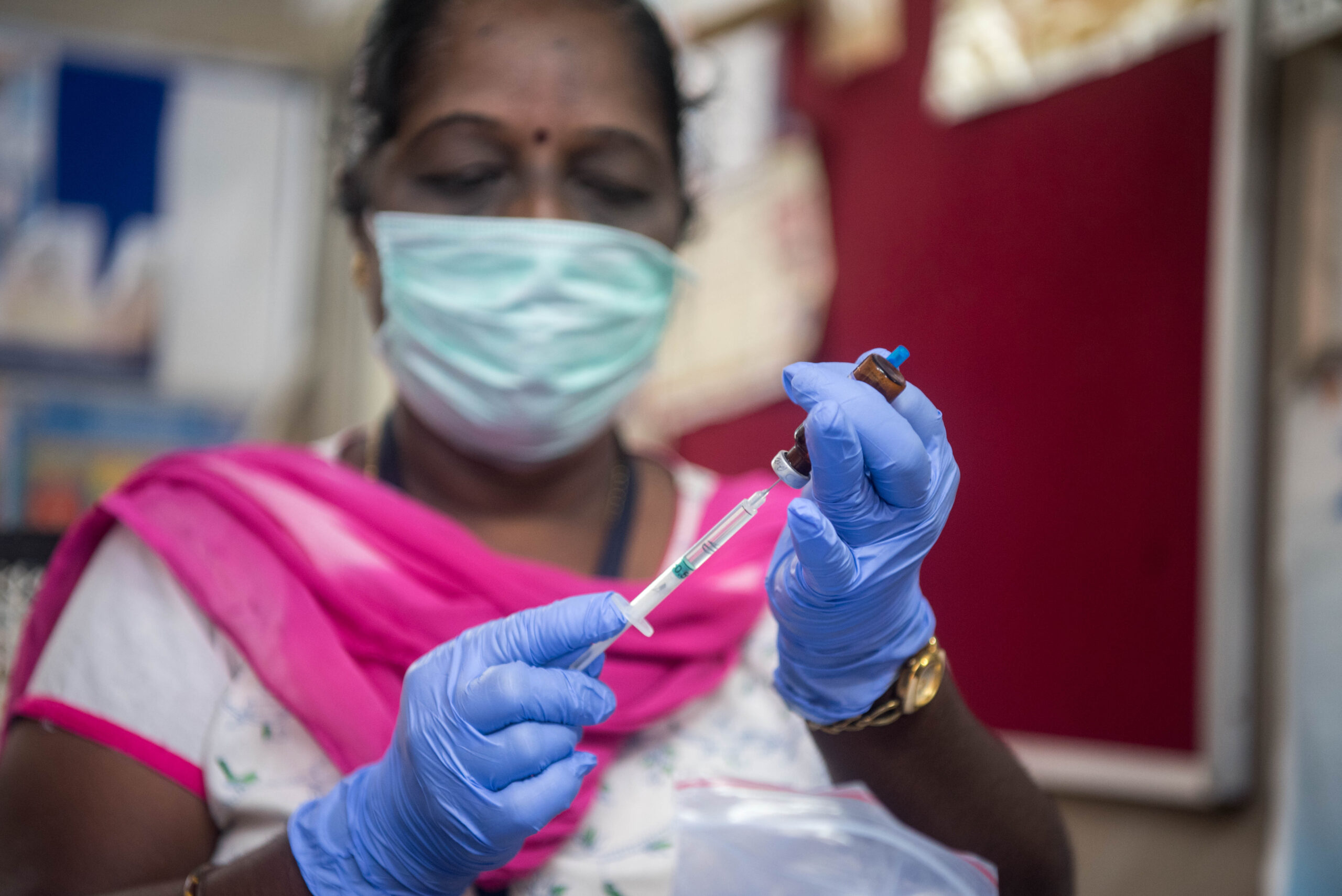Barely three months ago, a cascading series of shortages in resources and medical staff left India grappling for basic healthcare services. Amidst a devastating second wave of COVID-19, with over 4 lakh cases being reported in a day at its peak, hospitals in India ran out of beds and critical supplies, worsening an already tragic outbreak. During this time, India’s frontline health workers have been resolute in their duty as they stood out for their unwavering service during trying circumstances, particularly in rural areas. What has been notable is the commendable work done by ASHA workers (Accredited Social Health Activist) – India’s nearly one million strong army of women workers who have led the fight against COVID-19. These women have been working tirelessly to protect the communities from the outbreak, risking their lives every day, and have been inspiring to say the least.
In India, ASHAs are community health workers instituted by the Ministry of Health and Family Welfare (MoHFW). They are local women trained as health educators and promoters who have been driving health programs on maternal and child health, family planning, immunization, sanitation and more. While in many geographies, especially in remote-rural areas, they are the sole access point to health services but because of their deeper understanding on the issues and needs at the grassroots level, their contribution is much more. A true agent of change, ASHA workers play a key role in empowering the community on health planning and action. In times of a health crisis as the current one, many vulnerable communities rely on the support of ASHA workers to anchor them out of adversity.
Even during the COVID-19 pandemic, the ASHA women put up a formidable front against the spread of the virus especially in rural India where they led most prevention, detection, and response action with commitment. They are helping ensure people have access to the care they need, providing information about how to keep themselves safe, serving as a resource for the community for health information, all in addition to the roster of their regular tasks. They have been instrumental in advocating for and mobilizing the community to go for early testing and vaccination. As a report suggests, an ASHA worker serving in a district in Punjab, India, was responsible for over 70% of her target population group being vaccinated. Once again, they have taken charge of ensuring last mile delivery of essential medical services.
However, despite the critical role ASHAs have played during the pandemic, they continue to face significant challenges. Since they are not a part of the organized sector, their work and remuneration are yet to be regularized. While there is a growing appeal and demand for formalization of the work of ASHAs and other community health workers, it is yet to be translated into action. Social apathy, insufficient wages and challenging work environment due to COVID-19 were compounded by their own health risks and personal battles of separation from their own families in some cases. Given the trying circumstances and challenging situations, it has not been an easy task for these women warriors – the struggle has taken a toll on their physical and mental health.
India cannot afford to have a demotivated frontline health workforce; therefore, the need of the hour is to empower ASHAs. Providing a fair compensation would go a long way in acknowledging their contributions and ensuring continued enrolment in the ASHA program thereby giving health systems a much-needed boost to the arm. Earlier this year, the WHO established Independent Panel for Pandemic Preparedness and Responses (IPPPR) underlined the efforts of ASHA workers as a significant contribution in India’s pandemic response. It is about time that we recognize ASHAs as more than just honorary workers or volunteers and underpin their invaluable contribution to the public healthcare system. There is an opportunity to lead by example and initiate systemic change in treatment of women in the workplace. The time is now to support a change in the leadership paradigm and what better than to start with one of the largest health workforce.


